Table of Contents
Everyday Relativity: How Einstein’s Theory Impacts Us
Albert Einstein, the iconic physicist, is frequently associated with cosmic phenomena like black holes, neutron stars, and zipping spaceships darting across galaxies. Such colossal and distant wonders of the universe might seem too remote and abstract, often leading us to perceive Einstein’s theories as being applicable only in the far reaches of space.
Yet, the truth is closer to home, much closer than you might think. Einstein’s theory of relativity isn’t just confined to massive celestial bodies or science fiction scenarios. In reality, its implications ripple through our day-to-day lives, influencing technologies and phenomena we often take for granted.
For instance, our modern gadgets, the navigation systems we rely upon, and even the way we perceive the passage of time are all subtly intertwined with the genius of Einstein’s revelations. The impacts of his theory can be felt right in our pockets, on our wrists, and even during our morning commutes.
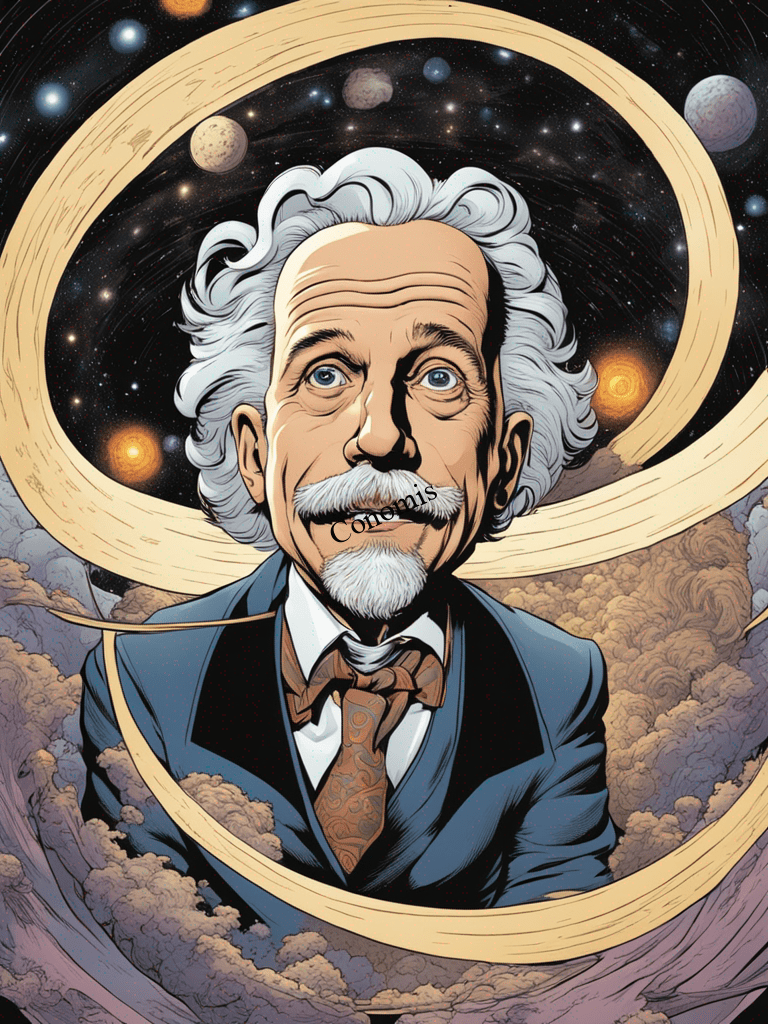
It’s intriguing, isn’t it? The same principles that explain the warping of time near a black hole also play a role in our mundane routines. It’s as if every tick of the clock and every glance at a GPS screen echoes the profound insights of a man who dared to understand the very fabric of space-time.
So, the next time you find yourself casually checking the time or planning a route on your smartphone, pause for a moment. Think of the vast universe, of black holes and speeding rockets, and then marvel at the genius of Einstein. For his revolutionary ideas aren’t just textbook theories or sci-fi fantasies, they are experiential truths, shaping and influencing our everyday world from the confines of our living rooms.
Introduction to Einstein’s Revolutionary Idea
Albert Einstein, a name that reverberates through the annals of scientific history, introduced the world to an idea in the early 20th century that would forever alter our comprehension of the universe. This idea, a theory known as relativity, was more than just another scientific proposition; it was a revolutionary lens through which we could view the intricate dance of space and time.
At its core, relativity presented a novel way to interpret the age-old laws of physics, especially when objects are in motion. Before Einstein, we largely believed in a fixed framework of space and time, where objects moved within this framework in predictable ways. However, Einstein challenged this very notion, suggesting that space and time were not rigid constructs but rather flexible entities intertwined with one another. Depending on how fast an object is moving, time can appear to stretch or contract, making seconds seem longer or shorter.
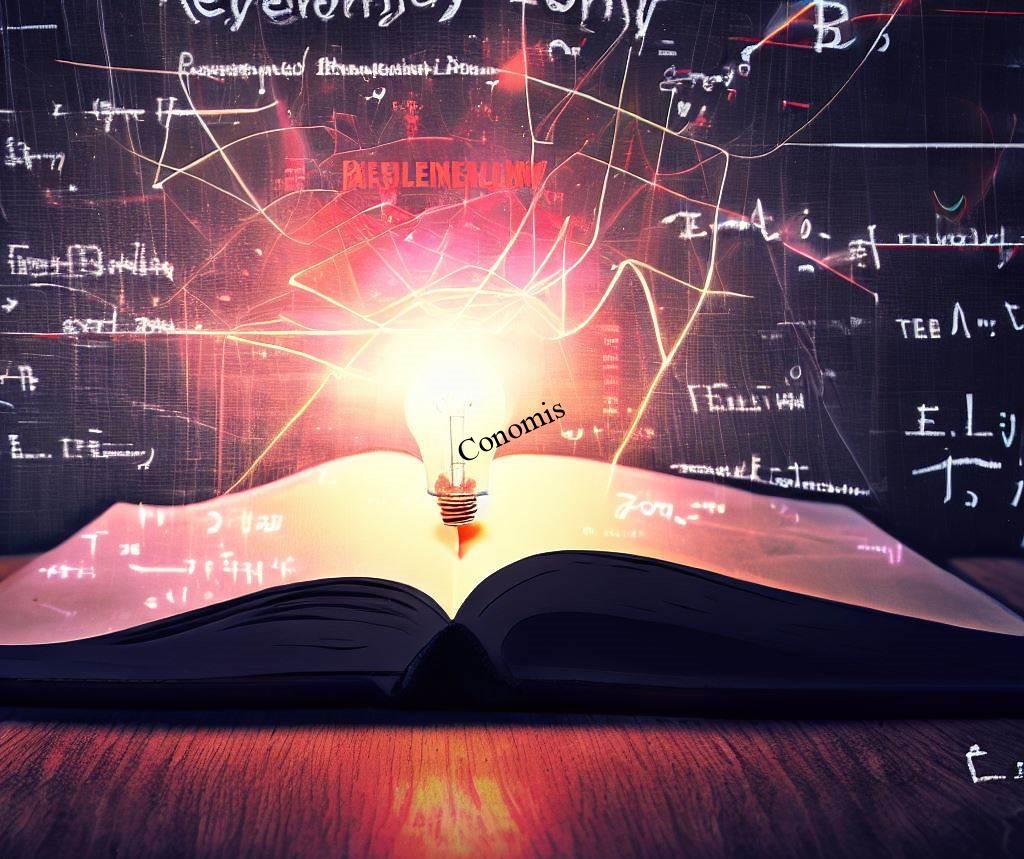
Imagine being on a superfast spaceship racing close to the speed of light and observing a clock inside the ship. To an observer outside, the clock’s ticking would seem slower, suggesting a dilation of time. This was one of the profound revelations of Einstein’s theory, indicating that time was not a constant entity but could vary depending on one’s relative motion.
This groundbreaking theory reshaped not only scientific paradigms but also our everyday understanding of reality. No longer could we view the universe as a static stage where events played out. Instead, the universe became a dynamic entity, always in flux, always relative. Through relativity, Einstein gave us the tools to comprehend the very fabric of the cosmos, offering a fresh perspective that stretched our imaginations and redefined our relationship with the universe around us.
Surprising Ways Einstein’s Theory Affects Daily Life
Timekeeping and the Modern World by Einstein’s Theory
In today’s fast-paced, technologically-driven era, many of us are reliant on our smartphones for a myriad of tasks. Among the most fundamental yet frequently overlooked is timekeeping. A simple glance at our digital screens reveals the current time, down to the very second. But have you ever stopped to ponder the intricate science behind this seemingly simple display? Surprisingly, behind that innocent time readout is the genius of Albert Einstein’s groundbreaking theory of relativity.
The world of modern timekeeping isn’t just about ticking seconds or oscillating quartz crystals. Particularly when it comes to the precision of atomic clocks, the heart of our global time standards, Einstein’s fingerprints are evident. These clocks, lauded for their incredible accuracy, don’t just count the regular movement of atoms. They delve deeper into the fabric of time itself, intricately linked with the principles of relativity.

Time dilation, one of the fascinating outcomes of Einstein’s theory, posits that time can stretch or contract depending on an object’s relative motion or gravitational field. For instance, an atomic clock aboard a speeding satellite will tick at a slightly different rate than its counterpart on Earth due to the effects of relativity. Even the gravitational pull from our planet can influence the passage of time, albeit minutely, as per Einstein’s general theory of relativity.
To ensure the global synchrony of time, atomic clocks must compensate for these relativistic effects. Without such adjustments, the precision of these clocks would falter, leading to discrepancies over extended periods. In essence, every time we peer at our smartphones to discern the time, we are indirectly witnessing the practical application of Einstein’s revolutionary ideas.
It’s a testament to the intertwined nature of science and daily life. What was once a radical theory, challenging our very understanding of the universe, now quietly operates in the background, ensuring our world ticks in harmonious unison.
Powering Up with E=mc^2
When one thinks of Albert Einstein, a myriad of images might flood the mind: the wild-haired genius, deep in thought, perhaps even sticking out his tongue in a playful moment. But among all his contributions to modern physics, one equation stands out, both in its simplicity and profundity: E=mc^2. This equation, embodying a mere five symbols, holds within it the secrets of the universe and has paved the way for innovations that power our contemporary world.
Breaking it down, E=mc^2 translates to energy (E) being equal to mass (m) multiplied by the speed of light (c) squared. This equation encapsulates the idea that energy and mass are interchangeable, a concept that was nothing short of revolutionary. For centuries, mass and energy were deemed distinct entities, never to be equated. Yet, Einstein’s brilliance revealed that at the atomic level, mass could be converted to energy and vice versa.
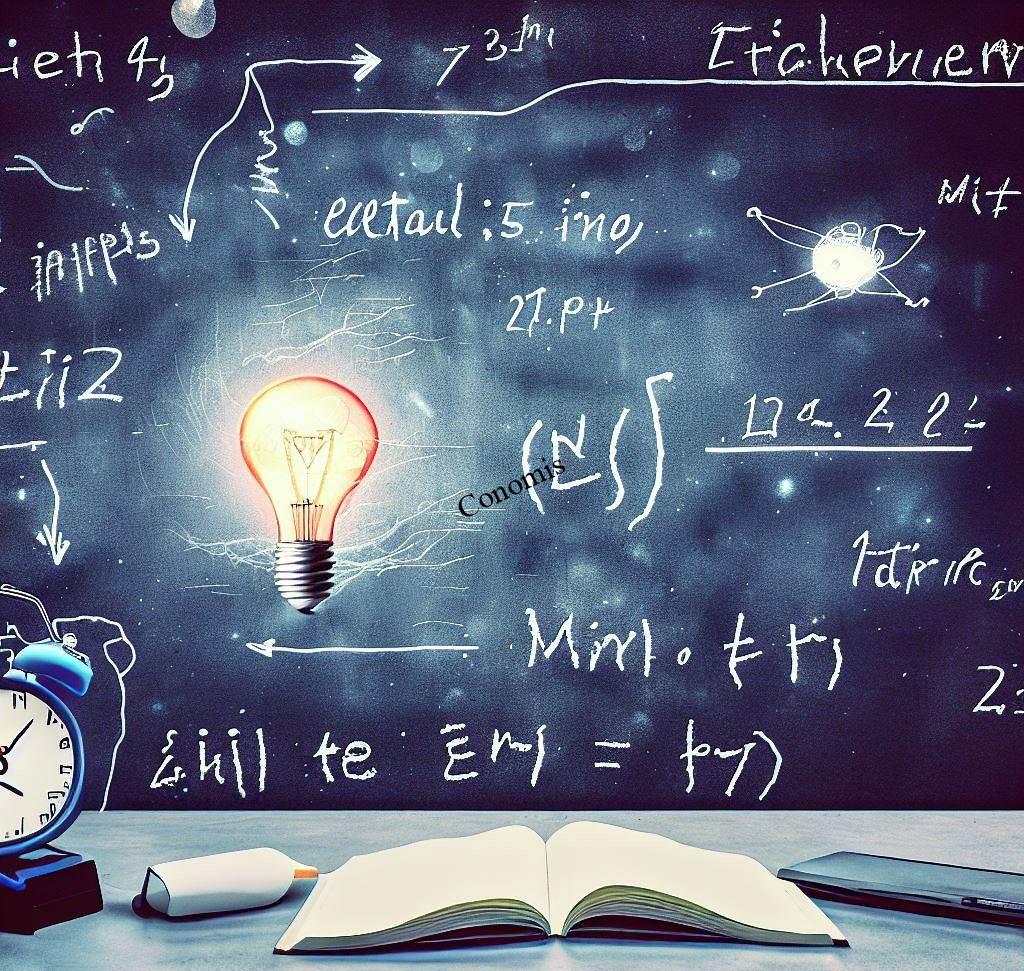
While most associate this equation with the cataclysmic force of nuclear explosions, its applications extend far beyond that. Indeed, the atomic bomb’s formidable energy is a demonstration of E=mc^2 in action, where a small amount of matter releases vast amounts of energy. But there’s a more constructive and peaceful side to this equation: nuclear power generation.
Nuclear power plants are testament to the harnessing of Einstein’s insights for the betterment of humanity. These facilities work by controlling nuclear reactions to convert a minuscule amount of mass into energy. This energy is then used to heat water, produce steam, and turn turbines, thereby generating electricity. So, every time we switch on a light, watch television, or charge our devices, there’s a good chance we’re using power rooted in Einstein’s groundbreaking equation.
In essence, the brilliance of E=mc^2 goes beyond theoretical physics. It’s intertwined with our daily lives, powering our homes and cities, and stands as a testament to how foundational scientific understanding can have practical, life-changing applications.
Reliving Einstein’s Wisdom
Notable Einstein Quotes
Albert Einstein’s legacy stretches far beyond the complex equations, groundbreaking theories, and dense scientific texts. With a mind that seemed to effortlessly dance between the empirical and the philosophical, Einstein had a unique ability to convey profound truths with remarkable simplicity. His quotes, much like his scientific contributions, have resonated with generations, offering wisdom that extends beyond the realm of physics and delves into the very essence of life.
Consider the quote, “Life is like riding a bicycle. To keep your balance, you must keep moving.” On the surface, it might appear to be a straightforward analogy, likening life’s challenges to the dynamics of riding a bike. But, as with much of Einstein’s musings, there’s depth beneath the simplicity. This analogy serves as a gentle reminder of the importance of perseverance, resilience, and the forward momentum necessary to navigate the winding roads of life.
The bicycle imagery conjures up notions of balance, both physical and metaphorical. Just as a stationary bicycle is likely to topple over, a stagnant life might lead to feelings of imbalance and discontent. Moving forward, even when faced with obstacles or uncertain paths, helps maintain equilibrium and purpose.
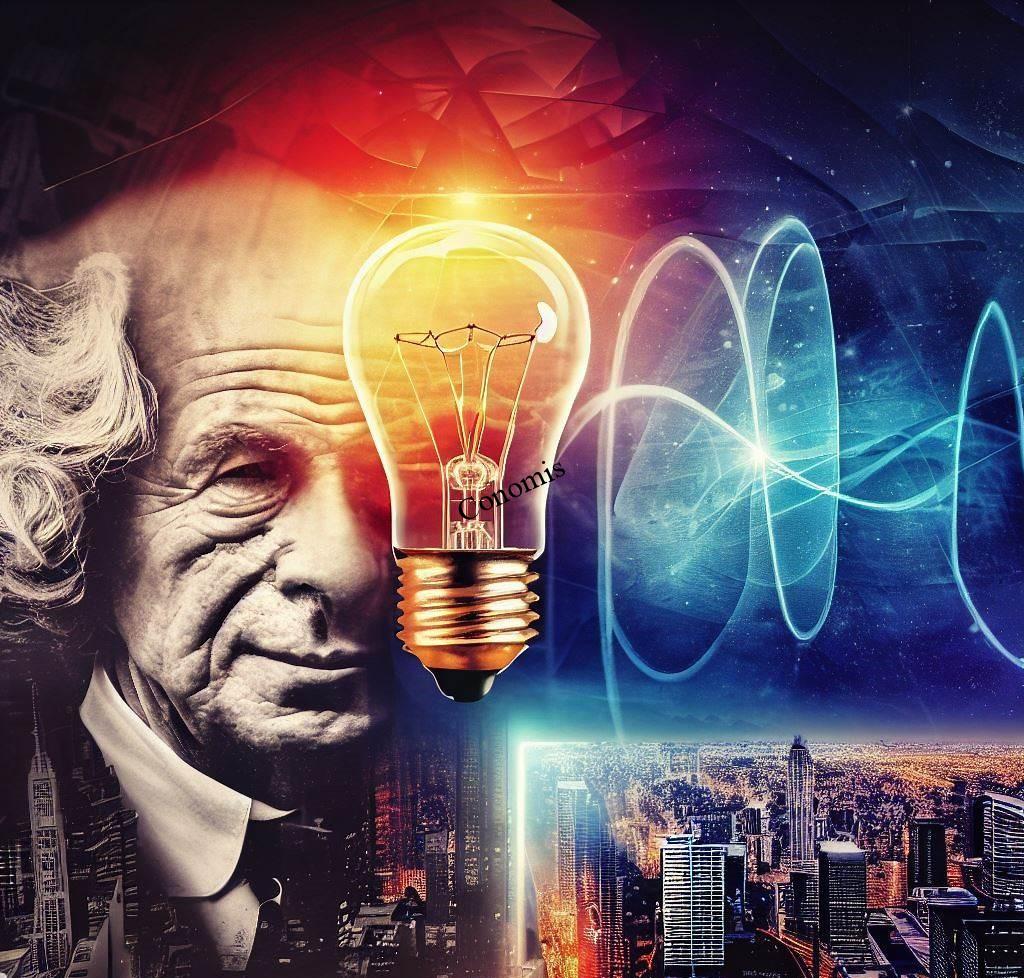
Furthermore, Einstein’s choice to intertwine life and science in his aphorisms underscores his belief in the interconnectedness of all things. For him, science wasn’t just a pursuit of knowledge but a lens through which one could better understand existence, relationships, and personal journeys. His words inspire not just budding physicists, but poets, artists, philosophers, and anyone seeking to find their balance in the vast cosmos of existence.
In celebrating Einstein, it’s essential to recognize that his genius was not limited to understanding the universe’s workings. His insights into human nature, life’s challenges, and the broader human experience remain timeless, serving as beacons for all those navigating the intricate dance of life.
Eureka! Einstein’s Moments of Revelation
The world of science is not merely a series of dry facts and cold equations. It’s a realm filled with wonder, curiosity, and those exhilarating “Eureka!” moments where the universe reveals one of its many secrets. Albert Einstein, with his iconic shock of white hair and contemplative gaze, is often portrayed as a man deep in thought, piecing together the intricate puzzles of the universe. Yet, his journey, like that of many great thinkers, was punctuated by moments of brilliant revelation that changed the course of science.
One might imagine Einstein in a quiet room, the soft hum of thought in the air, suddenly struck by a realization. Perhaps it was the moment he pondered the nature of gravity. Instead of viewing it as a mere force pulling objects together, he envisioned a grand cosmic dance where massive celestial bodies warped the very fabric of space-time around them. This gave birth to the idea that gravity could, in fact, bend light, a theory later confirmed during a solar eclipse, and a cornerstone of his general theory of relativity.

Another pivotal moment came with the conception of his famed equation, E=mc^2. Here, Einstein merged the realms of energy and mass, suggesting they were simply different manifestations of the same entity. This was a profound shift from traditional views, offering a new lens through which to understand the universe’s energy dynamics. It spoke of a universe where even the tiniest particles held within them colossal energy, waiting to be unlocked.
These moments of clarity, these flashes of insight, weren’t just personal triumphs for Einstein. They were milestones for humanity, expanding our understanding and reshaping the bedrock of physics. They serve as a reminder that science is not a linear path but a journey filled with twists, turns, and moments of awe. Through Einstein’s revelations, we’ve been granted a deeper, more intricate view of the cosmos, one that continues to inspire and mystify in equal measure.
Navigating with Einstein: GPS & General Relativity
How GPS Works
In our modern world, the Global Positioning System, better known as GPS, has become an indispensable tool. From guiding us through unknown city streets to tracking our morning runs, the marvels of GPS technology touch our daily lives in countless ways. But behind this seemingly magical tool that pinpoints our location lies a symphony of science and engineering, with a generous touch of Einstein’s genius.
Begin with the basic foundation: the GPS operates through a network of satellites, typically two dozen or more, that orbit our Earth. These satellites send signals back to our handheld devices, vehicles, or other GPS receivers. By calculating the time it takes for these signals to reach the receiver from multiple satellites, the device can triangulate its exact position on the planet.
However, the plot thickens when you delve into the finer details. Given that these satellites are hurtling through space at immense speeds, and are also further away from the Earth’s gravitational pull compared to us on the surface, the principles of Einstein’s relativity come into play. Time, as posited by Einstein’s theory of relativity, isn’t uniform. Specifically, due to the effects of gravity on time (a concept from Einstein’s general relativity), clocks aboard satellites tick slightly faster than their counterparts here on Earth. Moreover, special relativity, which deals with objects in relative motion, dictates that these satellite clocks, moving rapidly in orbit, will tick slightly slower than if they were stationary.
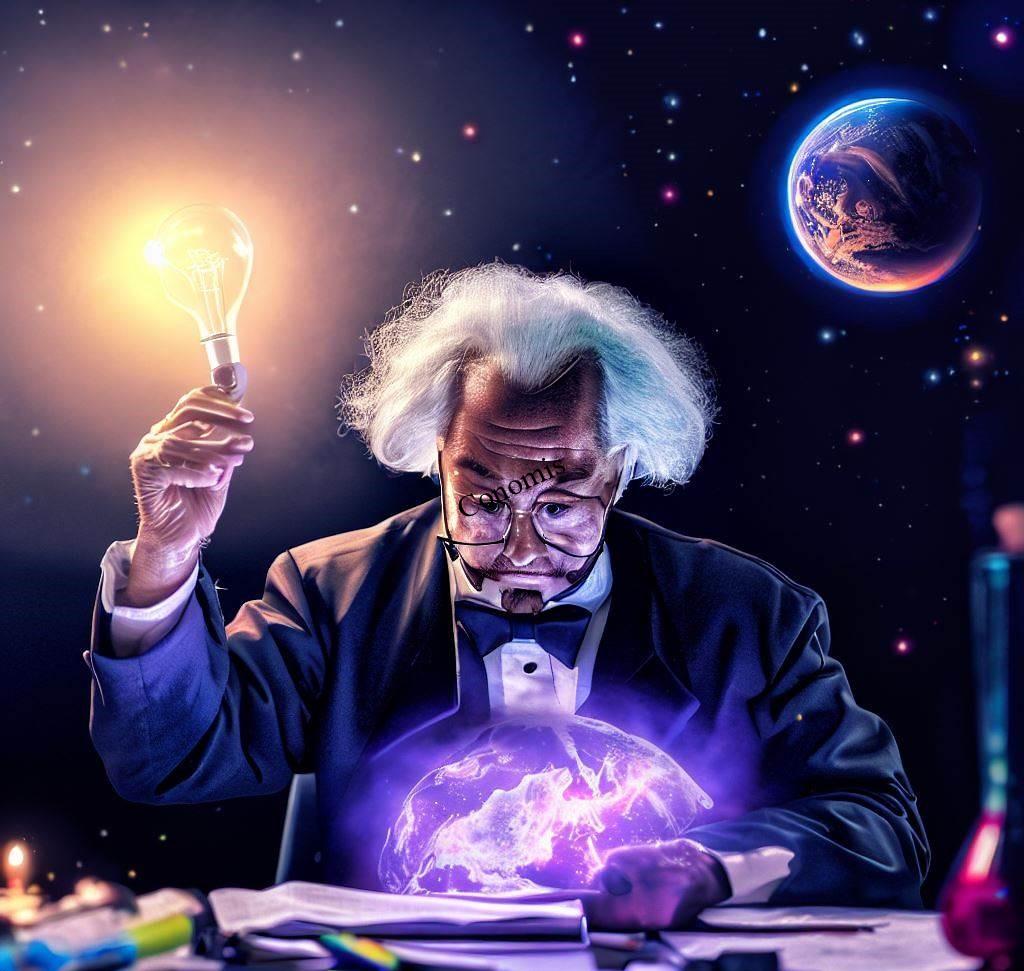
For the GPS system to provide the pinpoint accuracy we’ve come to rely on, it needs to account for these discrepancies. Without adjustments for these relativistic effects, GPS coordinates would be off by several kilometers. Thus, Einstein’s groundbreaking insights, once seen as mere theoretical wonders, prove essential in ensuring that the GPS system functions with precision.
So, the next time you hear that robotic voice from your GPS guiding you to your destination, remember: there’s a touch of Einstein in every direction it gives.
Why Accuracy is Essential
In today’s rapidly advancing technological era, the mantra seems to be: “precision is paramount.” Nowhere is this truer than with the Global Positioning System (GPS). Whether we’re embarking on a cross-country road trip, hiking in remote terrains, or simply trying to find the newest cafe in town, we place an immense amount of trust in our GPS devices. They guide, reassure, and sometimes even rescue us. But what stands between a seamless journey and potential chaos is a matter of mere accuracy in calculations.
Let’s paint a picture to emphasize the importance of this precision. Imagine you’re piloting an aircraft, relying heavily on GPS for navigation. A minor deviation or error in location can spell disaster, veering the plane off course and placing countless lives in danger. Similarly, on a smaller scale, even a few meters of inaccuracy can cause delivery trucks to miss their stops, hikers to stray from their paths, or ambulances to lose precious time. The margin of error, though it might be minuscule in the vast expanse of the globe, holds enormous consequences on the ground.

Enter Einstein and his revolutionary theory of relativity. Satellites, the very backbone of our GPS system, orbit our planet at speeds and altitudes where time doesn’t behave as it does on Earth’s surface. Due to the effects of relativity, clocks on these satellites experience time dilation, causing them to tick at a slightly different rate than their Earth-bound counterparts. If not corrected, this tiny discrepancy could lead to monumental errors in GPS calculations.
Thanks to the incorporation of Einstein’s insights into the software algorithms of GPS systems, we can compensate for these relativistic effects. This ensures that when our GPS device tells us we’ve arrived, we’re truly at our desired destination, and not kilometers off track. In essence, the blend of advanced technology with foundational science epitomizes the importance of accuracy. It’s a symbiotic relationship that ensures not just convenience, but often, safety in our daily endeavors.
Time Dilation: From Space to Your Daily Routine
The Theory Explained
The intricacies of time, space, and the universe might seem overwhelming, yet sometimes, the best way to grasp complex ideas is through a simple thought experiment. One of the most celebrated explanations of Einstein’s theory of relativity revolves around the tale of two twins. This story, more than just a scientific fable, offers a tangible lens through which we can begin to understand the mind-bending implications of time dilation.
Let’s set the scene. Two identical twins, let’s call them Alice and Bob, share everything from physical features to birthdates. Yet, a twist of fate sees Alice, with her adventurous spirit, embark on a journey through space aboard a high-speed spaceship, traveling at velocities approaching the speed of light. Bob, with his feet firmly on the ground, remains on Earth, eagerly awaiting his sister’s return.
As Alice’s spacecraft hurtles through the cosmos, something astounding occurs. Due to the immense speeds at which she’s traveling, time for Alice begins to slow relative to her twin brother on Earth. This isn’t a mere illusion or a quirk of perception, but a fundamental consequence of Einstein’s special theory of relativity. In essence, as velocity increases, time begins to stretch and elongate.

Fast forward, and Alice eventually returns from her cosmic voyage. But here’s the twist: while both twins were born at the same time, Alice, due to the effects of time dilation, has aged far less than Bob. While she might have experienced what felt like a few years, decades could have passed on Earth, making Bob significantly older than his once identical twin.
This “Twin Paradox,” as it’s often called, encapsulates the revolutionary and counterintuitive nature of Einstein’s theory. It challenges our everyday perceptions, urging us to think of time not as a constant, ticking uniformly, but as a fluid entity, malleable under the right conditions. Through the tale of Alice and Bob, we witness firsthand the profound implications of relativity, transforming abstract physics into a story of human experience.
Relating Time Dilation to Human Experience
Time, in many ways, remains one of the most enigmatic aspects of human experience. We’ve all had those moments where hours feel like minutes, and days seem to pass in the blink of an eye. These experiences, though not directly equated to the scientific principles of relativity, bear a poetic resonance with Einstein’s groundbreaking ideas on time dilation.
Consider first the scientific backdrop. Einstein’s theories suggest that time is not a constant entity but is affected by speed and gravity. In extreme conditions, such as near the event horizon of a black hole or traveling at nearly the speed of light, time can stretch or compress, becoming noticeably dilated or contracted. But what does this have to do with our everyday lives?
Humans, in their daily existence, are not zipping around at light-speed, nor are they venturing close to black holes. So, the direct effects of time dilation as described by Einstein are virtually imperceptible in our routine activities. However, it’s the essence of this theory, the idea that time isn’t fixed, that resonates with our subjective experiences.
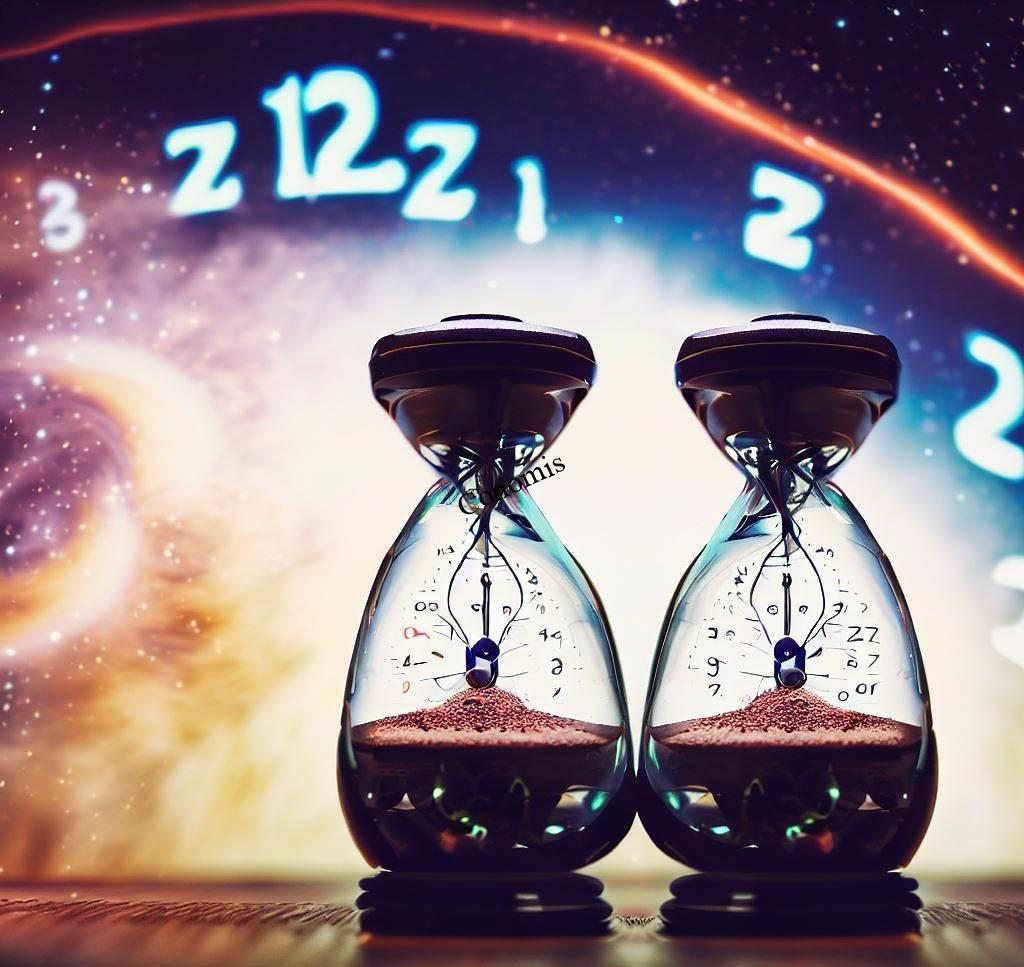
We’ve all heard the adage, “time flies when you’re having fun.” When engrossed in a riveting conversation, immersed in a captivating book, or lost in the rhythms of a favorite song, time seems to slip away. Conversely, during moments of anxiety, waiting, or boredom, every minute can feel painstakingly long. While these feelings are psychological and not dictated by the laws of physics, there’s a certain parallelism here. Just as relativity paints a picture of a universe where time is flexible, our emotions and experiences craft a personal reality where time’s passage feels mutable.
In this light, our human experience of time’s fluidity can be seen as a metaphorical echo of Einstein’s profound revelations. It’s a gentle reminder from the universe that time, in all its complexity, remains interwoven with our perceptions, emotions, and the very fabric of reality itself.
Conclusion
Albert Einstein, with his shock of white hair and contemplative gaze, has long been an emblematic figure not just in the realm of physics, but also in popular culture. His theories, particularly relativity, have shaped our understanding of the universe in profound ways. Yet, more than just a topic for academic discourse or the fodder for science fiction plots, relativity has tangible, everyday implications that might surprise many.
At the forefront of this daily dance with relativity is our reliance on technology, especially tools like the Global Positioning System (GPS). It’s easy to take for granted the magic of a device that can pinpoint our location anywhere on the globe. But behind that convenience lies a symphony of complex calculations, all of which need to take into account the quirks and intricacies of Einstein’s theory. If not for these adjustments, our modern marvels of navigation would be rendered almost useless, sending us miles off our intended path. Such is the hidden hand of relativity, guiding us even when we remain blissfully unaware.
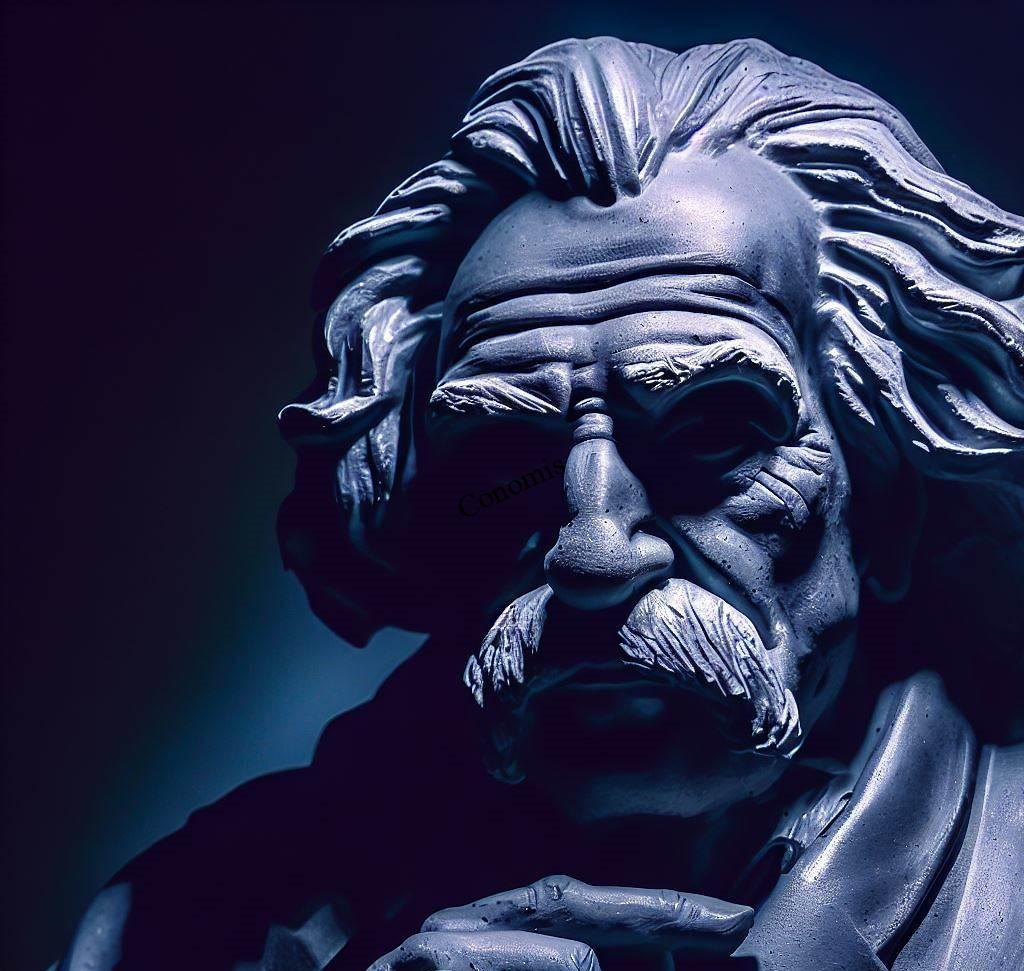
Beyond the tangible, there’s a more introspective connection to be made. Our perception of time, a cornerstone of human experience, finds curious parallels with the principles of relativity. While we might not be boarding spaceships or nearing black holes, we all have moments where time seems to stretch or shrink, influenced by our emotions, activities, or surroundings. In these fleeting instances, we become unwitting participants in a dance that mirrors the cosmic ballet described by Einstein.
In wrapping up, it becomes clear that the tendrils of Einstein’s insights reach far beyond the confines of textbooks or research labs. They permeate our daily lives, influencing everything from our most advanced technologies to our most intimate perceptions. It’s a beautiful testament to the universality and enduring relevance of scientific discovery. So, whether you’re navigating city streets with your trusty GPS or simply pondering the passage of time, take a moment to appreciate the legacy of Einstein, and remember, in both the grand and the mundane: it’s all relative!
Frequently Asked Questions
How does relativity affect our daily lives?
Beyond tech, it subtly influences our perceptions of time and space, reminding us of the universe’s wonders.
Is time dilation just a theoretical concept?
No, it’s been proven with precise experiments using atomic clocks on fast-moving jets.
Did Einstein invent the GPS system?
No, but his theories of relativity are fundamental to its accurate functioning.
Are there any practical applications of E=mc^2 beyond nuclear power?
Yes, particle accelerators and some medical technologies leverage this equation.
What’s the takeaway from Einstein’s perspective on life and science?
They are interconnected, and understanding the cosmos can inspire and inform our daily lives.
You Can Also Read

https://en.wikipedia.org/wiki/Albert_Einstein
https://www.nobelprize.org/prizes/physics/1921/einstein/biographical/
https://www.amnh.org/exhibitions/einstein
Conomis Thoughts
![]() Copyright 2023 CONOMIS
Copyright 2023 CONOMIS

Wow, wonderful blog format! How long have you ever been running a blog for?
you make running a blog glance easy. The overall
glance of your site is excellent, as well as the content material!
You can see similar: e-commerce and here sklep internetowy
Wow, incredible blog format! How long have you ever been blogging for?
you made blogging glance easy. The full glance of your web site is fantastic, as smartly as the content!
You can see similar: sklep and here dobry sklep
Wow, awesome weblog format! How lengthy have you ever been blogging for?
you make running a blog glance easy. The total look of your site is
wonderful, let alone the content! You can see similar: sklep and here dobry sklep
It’s remarkable for me to have a site, which is valuable for my know-how.
thanks admin
Here is my blog post :: vpn special coupon code 2024
Wonderful blog! Do you have any suggestions
for aspiring writers? I’m planning to start my own blog
soon but I’m a little lost on everything. Would
you suggest starting with a free platform like WordPress
or go for a paid option? There are so many options out there that I’m
totally overwhelmed .. Any recommendations?
Many thanks!
Here is my site – vpn special coupon code 2024
I got this web site from my friend who shared with me regarding this web site and at the moment this time I am browsing this website and reading very informative content here.
Here is my site :: vpn special code
Hi there, of course this article is really pleasant and I have learned lot of things
from it about blogging. thanks.
Feel free to surf to my website – vpn special coupon code 2024
Hello, I do think your website could possibly be having internet browser compatibility issues.
When I look at your blog in Safari, it looks fine however, if opening in I.E., it has
some overlapping issues. I merely wanted to give you a quick heads up!
Aside from that, fantastic site!
My website: vpn coupon code 2024
Hello there, just became aware of your blog through Google,
and found that it is truly informative. I am gonna watch out for brussels.
I’ll appreciate if you continue this in future. Numerous people will be benefited from your writing.
Cheers!
Also visit my blog – vpn special code
Great work! This is the kind of information that should be shared around the internet.
Disgrace on Google for now not positioning this post higher!
Come on over and consult with my site . Thanks =)
Here is my web blog: vpn code 2024
Wow, that’s what I was exploring for, what a material!
present here at this weblog, thanks admin of this
web site.
Here is my web page – vpn code 2024
Link exchange is nothing else except it is just placing the other person’s
webpage link on your page at proper place and other person will also do similar in favor of you.
Here is my blog post; vpn special coupon
It’s awesome to pay a quick visit this web site and reading the
views of all colleagues regarding this paragraph, while I am also keen of
getting knowledge.
Also visit my web-site vpn special
I have read some just right stuff here. Definitely price bookmarking for revisiting. I wonder how much effort you put to make the sort of magnificent informative site.
Hi! Do you know if they make any plugins to help with SEO? I’m trying to get my blog to rank for some targeted keywords but I’m not seeing very good results. If you know of any please share. Many thanks!